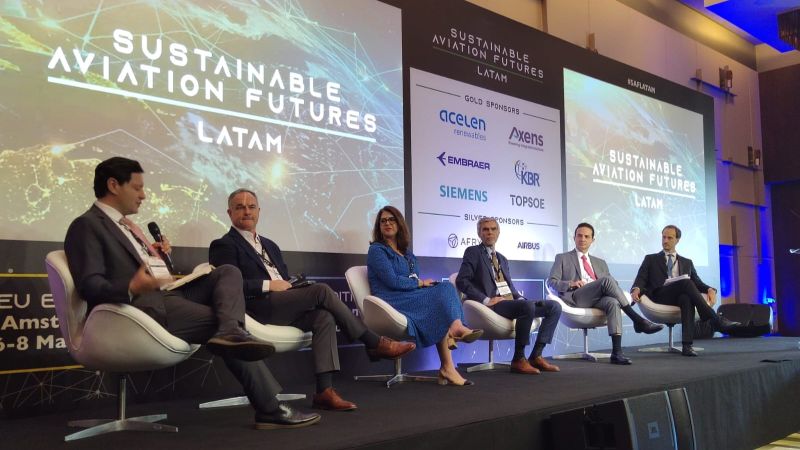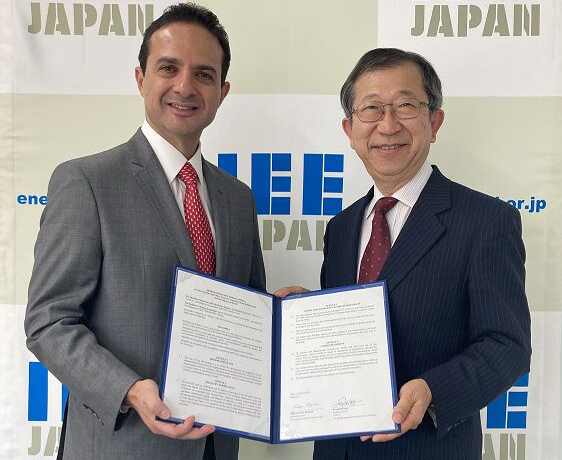In 2024, biofuels, innovation, sustainable practices, and the importance of Brazilian sugar and bioenergy sector’s contribution to a more sustainable future took center stage at numerous global events, meetings, and discussions. The Brazilian Sugarcane and Bioenergy Industry Association (UNICA), in collaboration with The Brazilian Trade and Investment Promotion Agency (Apex-Brasil) through Sugarcane Ethanol project, the Ministry of Foreign Affairs (MRE), foreign governments, associations and private companies, played a key role in organizing and promoting important initiatives. These events highlighted innovative solutions to some of the world’s most pressing challenges, including climate change, energy transition, and food security, showcasing Brazil’s leadership in driving sustainable development.
Asian countries have demonstrated strong potential and commitment to exploring new alternatives to replace fossil fuels and reduce carbon emissions, including the use of biofuels. In February, UNICA participated in the Bharat Mobility Expo 2024 in New Delhi, a trade fair that offered a forward-looking perspective on the future of mobility. The event brought together over 600 exhibitors from more than 50 countries. Brazil featured a 300-square-meter exhibition booth in the “Nature-Based Solutions” Pavilion, organized by the Indian Automobile Manufacturers Association (SIAM). At the booth, visitors learned about Brazil’s experience with ethanol, highlighting a sustainable value chain and its positive impact on the environment, public health, and air quality in urban areas. The exhibition also showcased models of flex-fuel vehicles and motorcycles, as well as hybrid-flex cars, which combine an internal combustion engine running on ethanol with an electric motor, offering high energy efficiency.
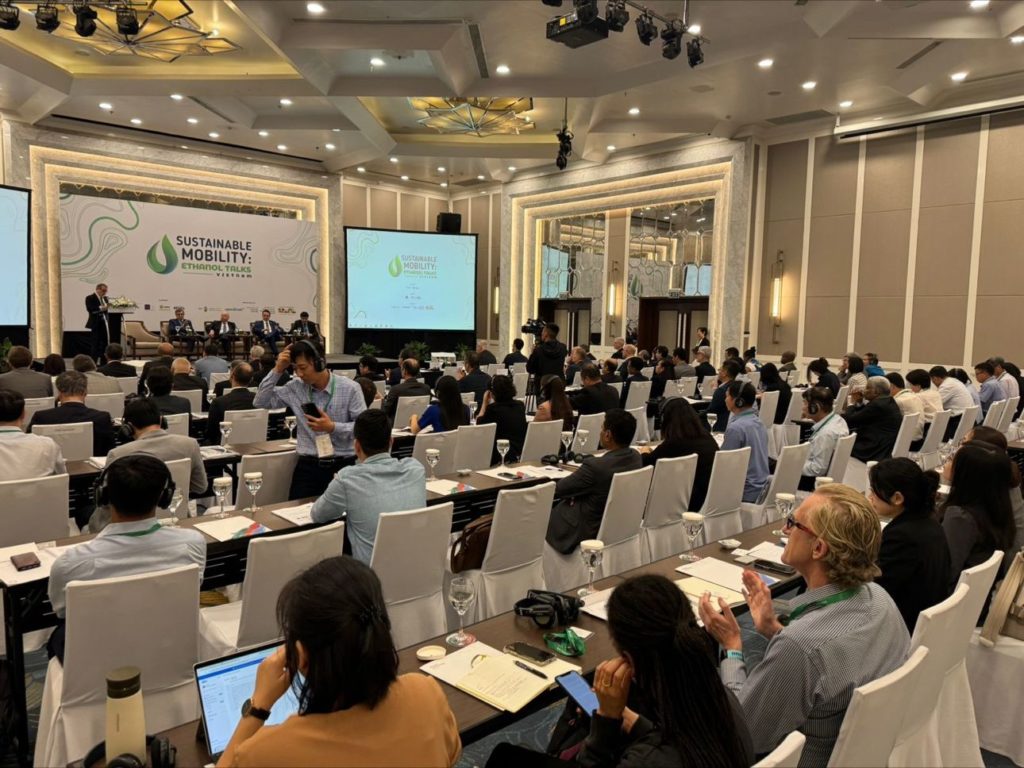
ETHANOL TALKS IN ASIA
In April, UNICA hosted The Sustainable Mobility: Ethanol Talks Vietnam in Hanoi, as part of a series of events aimed at promoting the global ethanol agenda. The project is supported by the Global Biofuels Alliance (GBA) and focuses on strengthening ethanol initiatives abroad. During the event, authorities and experts shared their experiences in biofuel production and utilization, highlighting the significant environmental and economic benefits achieved. They also offered valuable insights to support the development of biofuel production in South Asian countries. The event attracted around 100 participants, including ambassadors and representatives from 25 countries. Following the discussions in the event, a group of representatives visited UNICA’s headquarters later on the year to exchanges experiences and challenges on ethanol production and consumption, as well as international sugar trade.
In addition to efforts to showcase ethanol as a viable and affordable solution for decarbonizing the transport sector in Asia, UNICA also participated in a Brazilian mission to Bangladesh. Through bilateral meetings and events, the sugarcane and bioenergy sectors shared their 40 years of expertise in ethanol production and highlighted its potential as a global solution for a low-carbon transport future. During the mission, a joint statement was issued by the Foreign Ministers of Brazil and Bangladesh, emphasizing the importance of “bilateral dialogue and cooperation in research and development, as well as investments in renewable energy resources and the decarbonization of the transport sector through the use of cleaner energy and low-carbon fuels, including biofuels.”
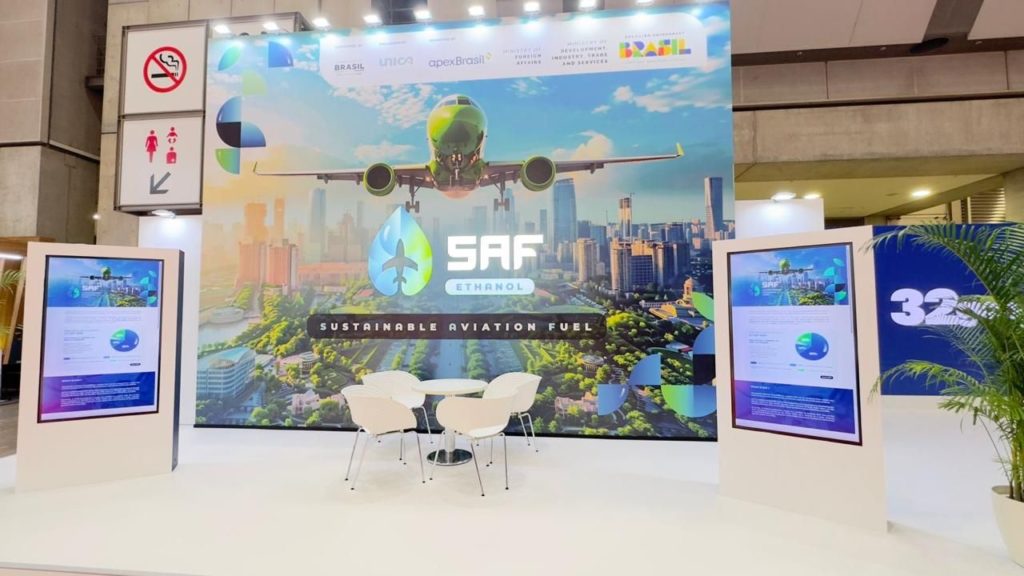
AEROSPACE EXHIBITION IN JAPAN
Still in Asia, Japan has also shown strong interest to advancing the use of sustainable fuels, not only in light-duty vehicles but also in aviation. In October, UNICA hosted a key event and showcased an exhibition booth at the Japan International Aerospace Exhibition, highlighting the immense potential of Sustainable Aviation Fuel (SAF) derived from ethanol.
The event provided an opportunity for participants to engage in discussions about decarbonizing the aviation sector, while also emphasizing the significant role ethanol can play in helping the industry meet its ambitious goal of achieving net-zero carbon emissions by 2050. This initiative followed the success of the Brazil-Japan Biofuels Workshop 2024, organized by UNICA and its partners in August. During that week-long event, representatives from both countries participated in workshops and site visits aimed at fostering knowledge exchange on policy trends and the bioenergy production landscape.
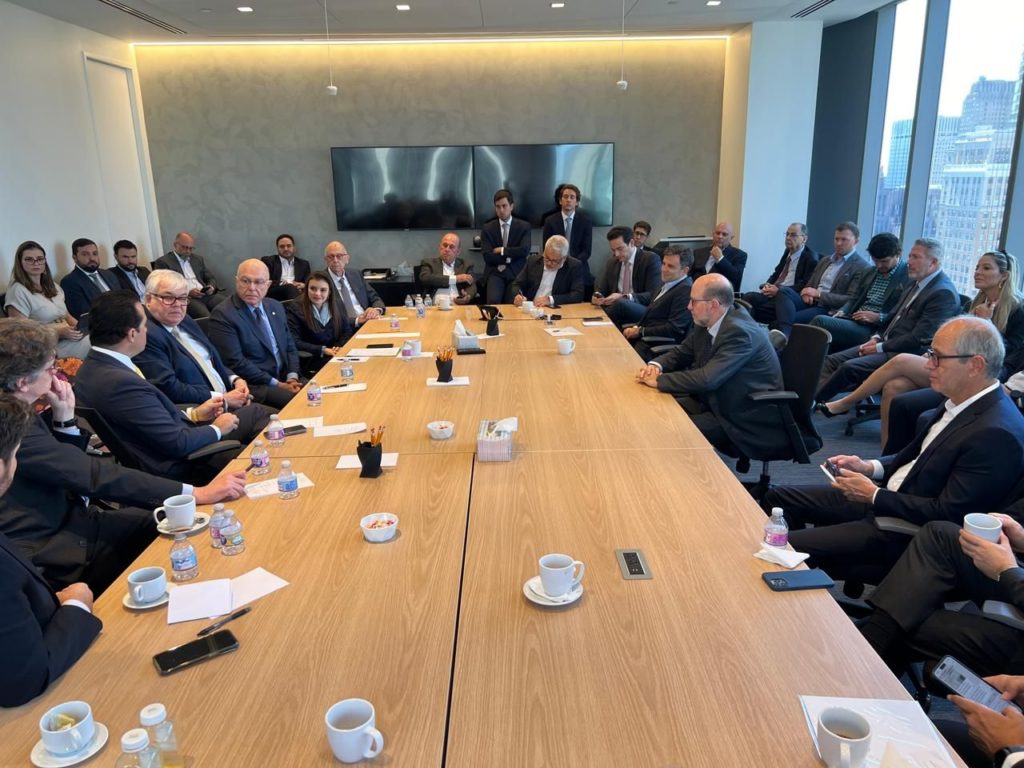
SUGAR WEEK IN NEW YORK
In the United States, one of the key highlights of the year was the traditional Sugarweek, where stakeholders from the sugarcane industry gathered to discuss the challenges and future opportunities for bioenergy. This year, UNICA organized a comprehensive bilateral agenda, engaging with governments, partners, and hosting a roundtable discussion in partnership with XP Investimentos. The event focused on the potential of biomethane, biogas, and carbon capture and storage (CCS), bringing together Brazilian business leaders and parliamentarians to share insights and foster collaboration on these critical topics.
Another key highlight of the agenda was a private meeting with the Indian Sugar & Bio-energy Manufacturers Association (ISMA) to strengthen the technical partnership for the ethanol program in India. Later in the year, a delegation from ISMA visited ethanol production facilities in Brazil to gain firsthand insights into best practices and explore successful approaches to ethanol production and consumption.
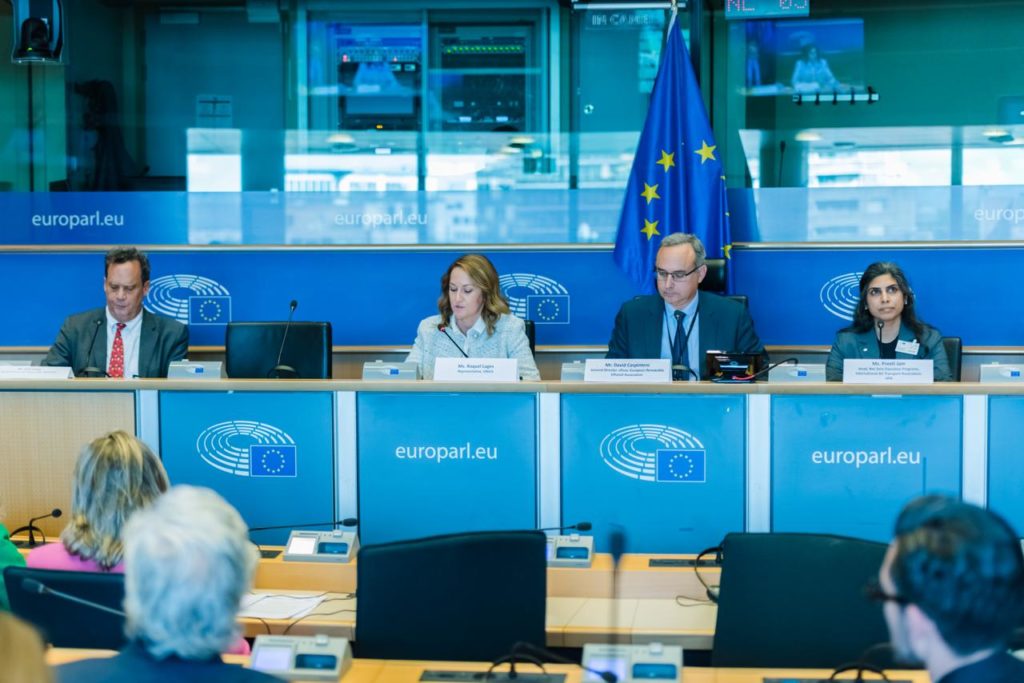
IN EUROPE, DEBATING ON RENEWABLE ENERGY
In Europe, UNICA closely monitored the bioenergy agenda, actively participating in key events and discussions, and engaging with stakeholders to advocate for legislative advancements and programs that promote renewable energy, benefiting both the environment and people’s daily lives. One notable event was the innovative “Clean Cooking Africa” forum, organized by the IEA at UNESCO’s headquarters in Paris. This gathering provided an opportunity for the Brazilian bioenergy sector to showcase its achievements to delegates from over 60 countries. In a region where many African households still rely on traditional stoves and open fires for cooking, Brazil’s experience in utilizing renewable energy in everyday life offers valuable insights to help Africa pursue a more sustainable path with energy security and equal access.
Additionally, to foster greater exchange between Europe and Brazil, UNICA participated in important events organized by the European Parliament, the International Organization, and the Global Sugar Alliance. Site visits were also a key part of the agenda, offering a closer look at sugar and ethanol production. UNICA accompanied Brazilian representatives to Tereos’ sugar factory in France, where they explored beet sugar production, shared insights on Brazil’s success in producing sugar from sugarcane, and emphasized the critical role of biofuels in the energy transition and sustainable agricultural practices.
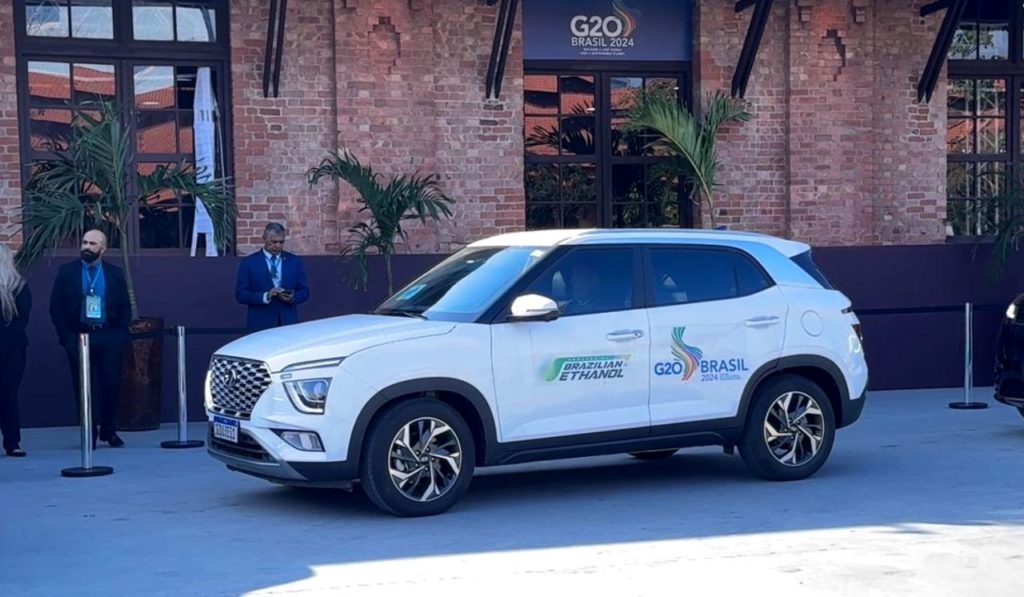
BRAZIL HOSTED THE G20 MEETINGS
Brazil’s global pioneering role in biofuel production and consumption is widely recognized also due to the innovative Flex-fuel technology. First introduced in 2003, this technology has been a cornerstone of Brazil’s bioenergy strategy and was a central focus of UNICA’s initiatives during the country’s G20 presidency in 2024, showcasing how ethanol can play a pivotal role in advancing global emissions reduction goals and driving sustainable energy solutions worldwide. In collaboration with Apex-Brasil, the Ministry of Foreign Affairs, and Toyota do Brasil, approximately 700 hybrid and flex-fuel vehicles powered by ethanol were used to transport delegations, supporting 75 official events.
Additionally, Brazilian ethanol was featured in numerous events, panels, and discussions organized by UNICA and its partners, emphasizing Brazil’s expertise in ethanol production and usage. This expertise, along with the recognition that biofuels offer an immediate and affordable solution to decarbonize the transport sector, was central to the executive summary (Ethanol Handbook) of the book “Bioethanol: Fast Track to Decarbonizing Mobility.”, led by Professor Luiz Horta Nogueira.
As a result, G20 members signed a declaration in November recognizing the critical role of sustainable fuels in transitioning to a clean global energy matrix, calling for the scaling up of sustainable fuels as a key strategy in the fight against climate change, and recommending the adoption of mutually recognized methodologies and standards for assessing greenhouse gas emissions.
PROMISING FUTURE
All the efforts and achievements of 2024 will definitely path the way to a promising coming year, with fruitful debates and collaborations that drive innovation and policy advancements toward a cleaner and more sustainable energy future. Through collaboration between governments, businesses, and communities, UNICA is poised to make meaningful progress towards a world where bioenergy is not only a goal but a reality.
